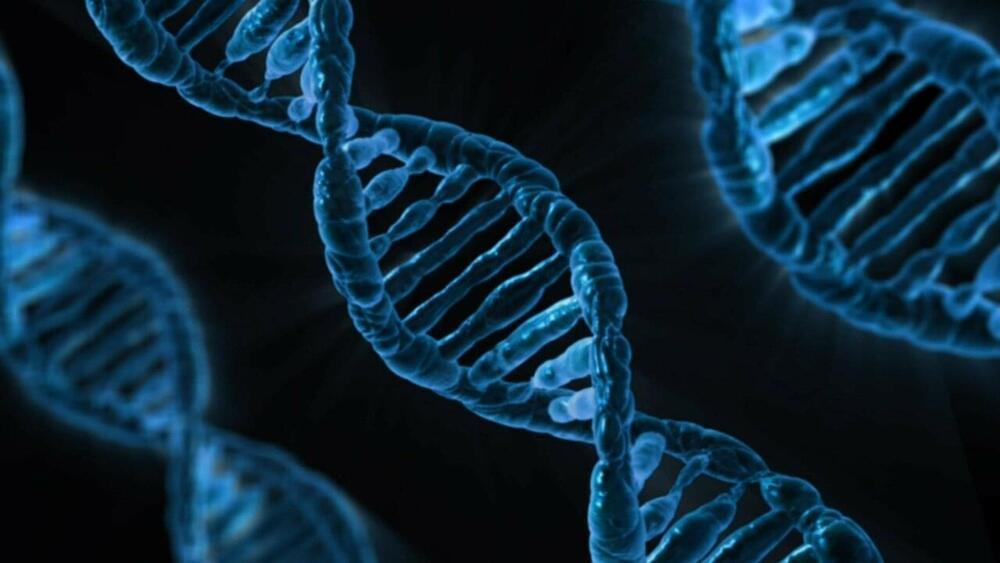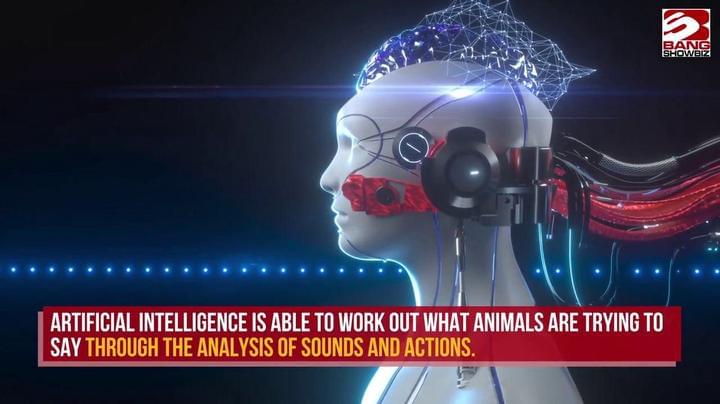Senescent cells accumulate with age when one senescent cell turns another cell senescent through SASP secretion. New research is offering new hope for fighting this.



Changes in the brain caused by Alzheimer’s disease are associated with shortening of the telomeres—the protective caps on the ends of chromosomes that shorten as cells age—according to a new study led by Anya Topiwala of Oxford Population Health, part of the University of Oxford, UK, published March 22 in the open-access journal PLOS ONE.
Telomeres on chromosomes protect DNA from degrading, but every time a cell divides, the telomeres lose some of their length. Short telomeres are a sign of stress and cellular aging, and are also associated with a higher risk of neurological and psychiatric disorders. Currently, little is known about the links between telomere length and changes that occur in the brains of people with neurological conditions. Understanding those relationships could offer insights into the biological mechanisms that cause neurodegenerative disorders.
In the new study, researchers compared telomere length in white blood cells to results from brain MRIs and electronic health records from more than 31,000 participants in the UK Biobank, a large-scale biomedical database and research resource containing anonymized genetic, lifestyle and health information from half a million UK participants.

Food tech startup Farther Farms has developed a process that keeps foods that would normally need to be refrigerated or frozen fresh at room temperature — and their first product is a bag of shelf-stable French fries.
The cold chain: Microorganisms are a major cause of food spoilage, and they thrive at room temperature. By keeping some foods cold, we can slow the growth of these microbes, extending the life of the food.
To do that, the foods must be prepared, shipped, and stored along a temperature-controlled supply chain (a “cold chain”). If the cold chain is broken at any point along the way, the food may quickly become unsafe to eat.

Year 2022 Basically this mechanoluminescence material can bring illumination to the mysterious info of stress in infrastructure so there could eventually be an easier way to measure aging infrastructure.
Both in Japan and other developed countries, social infrastructure built during periods of rapid economic growth is rapidly aging, and accidents involving aging infrastructure are becoming more frequent. The useful life of infrastructure is considered to be about 50 years due to the deterioration of concrete, a key component. Concrete eventually cracks due to internal chemical reactions and external forces, and so-called “moving cracks” that are gradually progressing due to the constant application of force are particularly dangerous. However, finding such cracks is a difficult task that requires significant time and effort. That’s why Nao Terasaki, a team leader at the National Institute of Advanced Industrial Science and Technology (AIST), and his colleagues have developed a luminescent material that helps reveal dangerous cracks by making them glow.

If it’s always been your dream to have the ability to live forever, you may be in luck as scientists believe we are just seven years away from achieving immortality. Futurist and computer scientist Ray Kurzweil has made predictions on when the human race will be able to live forever and when artificial intelligence (AI) will reach the singularity, and he believes it could be possible as early as 2030.

Color me surprised… a new bipartisan house caucus on longevity.
We in the longevity field have received powerful allies on Capitol Hill with the creation of the bipartisan Congressional Caucus for Longevity Science. We had the opportunity to ask questions of one of its co-chairs.
The fight against aging must become one of humanity’s main priorities if we want to see meaningful progress on a global scale. This requires recruiting allies among politicians and other decision makers.
Recently, a major step in that direction was made. Reps. Gus Bilirakis (R-FL) and Paul Tonko (D-NY) announced the formation of the Congressional Caucus for Longevity Science. According to the press release, the caucus “aims to educate Members about the growing field of aging and longevity biotechnology, and promote initiatives aimed at increasing the healthy average lifespan of all Americans.”
Can anti-aging breakthroughs add 10 healthy years to the human life span? The CEO of OpenAI is paying to find out.
So, 22% increase. Roughly like a 120 person, which means if this literally translates to people it means a maximizing of our current lifespan. The rest is just a rundown of Aubrey’s experiment.
Dr Katcher’s lifespan experiment has come to an end as the last remaining rat, Sima, has died. She was 1,464 days old which is a record for Sprague-Dawley rats. We also talk about the exciting Robust Mouse Rejuvenation project at the LEV Foundation.
Longevity Escape Velocity Foundation projects web page _https://www.levf.org/projects_
📃Papers in this video.
Reversing age: dual species measurement of epigenetic age with a single clock.
_https://www.biorxiv.org/content/10.1101/2020.05.07.082917v1.full_
*Renue By Science* 10% : _https://tinyurl.com/4yrf4tv3_
Billionaires like Jeff Bezos, Peter Thiel, and Sam Altman want to live forever, here’s how they’re planning on doing it and what it could mean for society.
First ‘long form’ video I have made in awhile. Very excited to get back into it and play around with different ways of styles and editing. Excited to hear what you guys think!
Chapters.
0:00 Introduction.
0:35 The Epic of Gilgamesh.
1:23 The Anti-Aging Industry.
1:59 Billionaire Life Extension.
3:17 Digital Heaven.
3:40 The Immortal Animal.
4:25 Impacts on Society.
5:25 The Great Equalizer.
Gear I Use:
Tascam Microphone: https://amzn.to/3L4f2TM
Rode Go Microphone: https://amzn.to/3kQWmfr.
Greenscreen: https://amzn.to/3T3iNdV
Sony A7C: https://amzn.to/3kNl4gN
Sony 16-35mm: https://amzn.to/41QWoV4
SD Card: https://amzn.to/3ylwDPa.
Hard Drive: https://amzn.to/3mwY1Y2
Laptop: https://amzn.to/3mwYae2
Find Me Here.
TikTok: https://www.tiktok.com/@mulligan.tv.
Instagram: https://www.instagram.com/mulligan.tv.
Additional Footage from Storyblocks.
